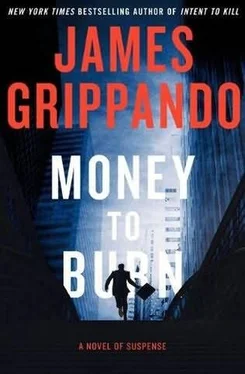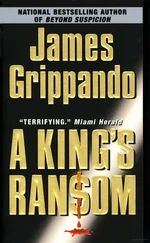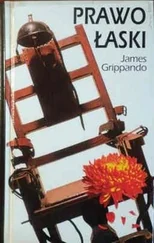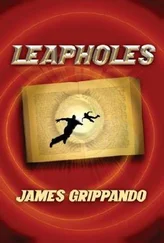“Yeah, and you and I need to meet ASAP. Where are you now?”
I was embarrassed to tell him, so I didn’t get specific. “Midtown.”
“My office is down toward Foley Square, but do you want to come uptown first and say hi to Janice?”
Janice was his wife of two years. I’d missed their wedding, and I had yet to visit their Upper East Side apartment, so this shot at me was probably deserved. But I had to wonder if Kevin would have invited me to his apartment, much less to his wedding, without Papa pushing it. Sometimes I thought Kevin embraced me only out of guilt-his own need to rectify the perceived injustice of two boys having come from the same womb, one raised by his biological father in the land of plenty, the other sent away by his stepfather to live with the maternal grandparents and grow up thinking that frozen fish sticks every Friday were a treat.
“Let’s meet in your office,” I said.
“I can be there by nine.” He gave me the address, then said, “I’m glad you called, dude. I’m happy to help. Really.”
I thanked him and hung up, wondering how long this was going to last.
Really.
I called Mallory, and she promised to pass along Kevin’s message to the nice detective. She also agreed to let me stop by and get some clean clothes and personal items. I found a small suitcase in the hallway. A pressed suit, shirt, and tie were hanging from the doorknob.
She might as well have taped a DO NOT ENTER sign on the door.
My gym was on the way to Kevin’s office, and my prepaid MetroCard got me there to take a real shower and put on the fresh suit and clean shirt. The suitcase was technically too big for my locker, but I made it fit. My credit card still wasn’t working-Anoop Gupta had failed me-so I put a strawberry smoothie and a granola bar on my tab. From a stuffed chair in the lobby, I took a few proactive measures to make sure my personal crisis didn’t drag my career down with it.
Most major corporations lumped their green efforts under a vice president of social responsibility. I had meetings with five of them in two different cities scheduled over the next two days, so I did the socially responsible thing and let them know there was no way in hell that I was going to be there. That was the easy task. The next series of phone calls was much more difficult. I was trying to put my key people at ease, but they all watched the news, and I could hear the fear in their questions.
“What’s going to happen?”
“Is it true we’re up for sale?”
“I’m pregnant, Michael. If we go belly up-no pun intended-do I lose my health care coverage?”
I hung up, exhausted. I hadn’t even come close to dealing with every managerial responsibility I had as head of the Green Division, but refusing to drink the Kool-Aid came with a price: Committing only one hand to management meant that my clients and contacts in the world of production also had to be reassured. There were no small fish in my pond, and before I could dial his number, Moby Dick was calling me.
“Kyle McVee here,” he said, his voice crackling on my cell phone. “I’m on my way downtown. I’ll pick you up and we can talk.”
He knew I hadn’t worked downtown since 9/11, but this was McVee’s style-you went where he was going, you didn’t ask what or why, you talked when he wanted to talk. He was the president and CEO of one of the world’s most successful hedge funds, Ploutus Investments, LLP. The firm’s namesake was the Greek god Ploutus, the personification of wealth, not the Roman god Pluto, ruler of the underworld-though in recent years people were saying that the latter was more fitting. I couldn’t say that I actually liked McVee, but bringing him to Saxton Silvers had definitely worked to my benefit. The big Wall Street brokerage houses hungered for hedge funds, which traded much more furiously than typical investors. Ploutus meant millions to Saxton Silvers in brokerage commission dollars.
“I’m at the gym, but I actually have a meeting at nine o’clock near the federal courthouse,” I said.
“Perfect,” he said. “We’ll drop you off.”
I gave him the gym’s cross streets in lower Midtown and waited. And waited. It was sort of what Wall Street as a whole had been doing for hedge funds since the late 1990s-waiting on them, picking up the tab for lavish “capital introduction parties” in places like St. Moritz or Palm Beach, publicly denying that we steered our clients their way in exchange for all that brokerage business they did with us. When I started B-school, there were about six hundred domestic hedge funds. Ten years later there were more than 6,300, about a third of which couldn’t have told you the date of their last audit. Some were charlatans, boobs, or worse. But hedge funds like Ploutus were hiring some of the sharpest minds on Wall Street-including Ivy Layton, who had been with McVee only a few months before she’d died. Successful managers worked like dogs but were paid like hogs, taking a 20 percent cut of profits (the carry) on top of annual management and administrative fees-compared with mutual fund fees of, on average, 1 percent of assets.
A long black limo pulled up. The door opened, and out climbed McVee’s twenty-five-year-old nephew, Jason Wald. He was talking loudly on his cell, seeming to make it a point that I overheard.
“Look, I’m not trying to be an asshole,” Wald said into the phone, emphasis on the word trying. “We’re selling the company, and you’re out. It’s over, T.J.”
Wald was having too much fun with this call, and it was obvious that the timing was choreographed for my benefit. I knew he was talking to T. J. Barnes, CEO of one of the top one hundred companies in Dallas. T.J. was a middle-aged cowboy who had never worked for anyone a day in his life until-on a tip from me-McVee’s hedge fund purchased a controlling interest in his company.
Papa’s voice was echoing in my head again: Who are your enemies, Michael?
I climbed into the limo and sat on the black leather bench seat facing McVee and his nephew, my back to the driver.
In recent years, the face of the relationship between Ploutus and Saxton Silvers had been less and less about me and Kyle McVee. Jason Wald wasn’t about to grab the helm from his uncle, but his influence was enough to steer Ploutus deep into the subprime waters of Kent Frost and his structured products factory. Since I was the one who started the relationship between the two firms, McVee must have felt compelled to drop the bomb on me, rather than on my CDO-making, market-shaking, bonus-taking colleague.
“There’s no way to soft-pedal this, Michael. Ploutus and its affiliates have no choice but to withdraw all of our capital from our prime brokerage accounts at Saxton Silvers.”
It was as if he’d just punched me in the chest. Prime brokerage was a highly profitable bundle of services we provided to hedge funds and other professional investors who favored short-selling and other leveraged megadeals.
“That’s two and a half billion dollars,” I said.
“As of this morning, yes.”
“That money is the collateral for the deals we finance and the trading strategies we execute for you.”
“I hate to state the obvious, but what I’m telling you is that Ploutus won’t be doing any more deals or executing any further strategies through Saxton Silvers.”
“This is the kind of move from a major hedge fund that others will follow.”
I was sure he’d heard me, but he was suddenly gazing out the window. We were near the NYU campus, slowly rounding the corner. McVee’s attention had shifted to the nearly completed building facing Washington Square.
“Coming along nicely,” he said with a wan smile.
The university was getting a new arts center named for McVee’s son Marcus. I had attended the groundbreaking ceremony as one of McVee’s guests two years earlier. Marcus had been dead for several years now, and still it wasn’t easy to get McVee to focus on much of anything when his son was in his thoughts. But I had to try.
Читать дальше












